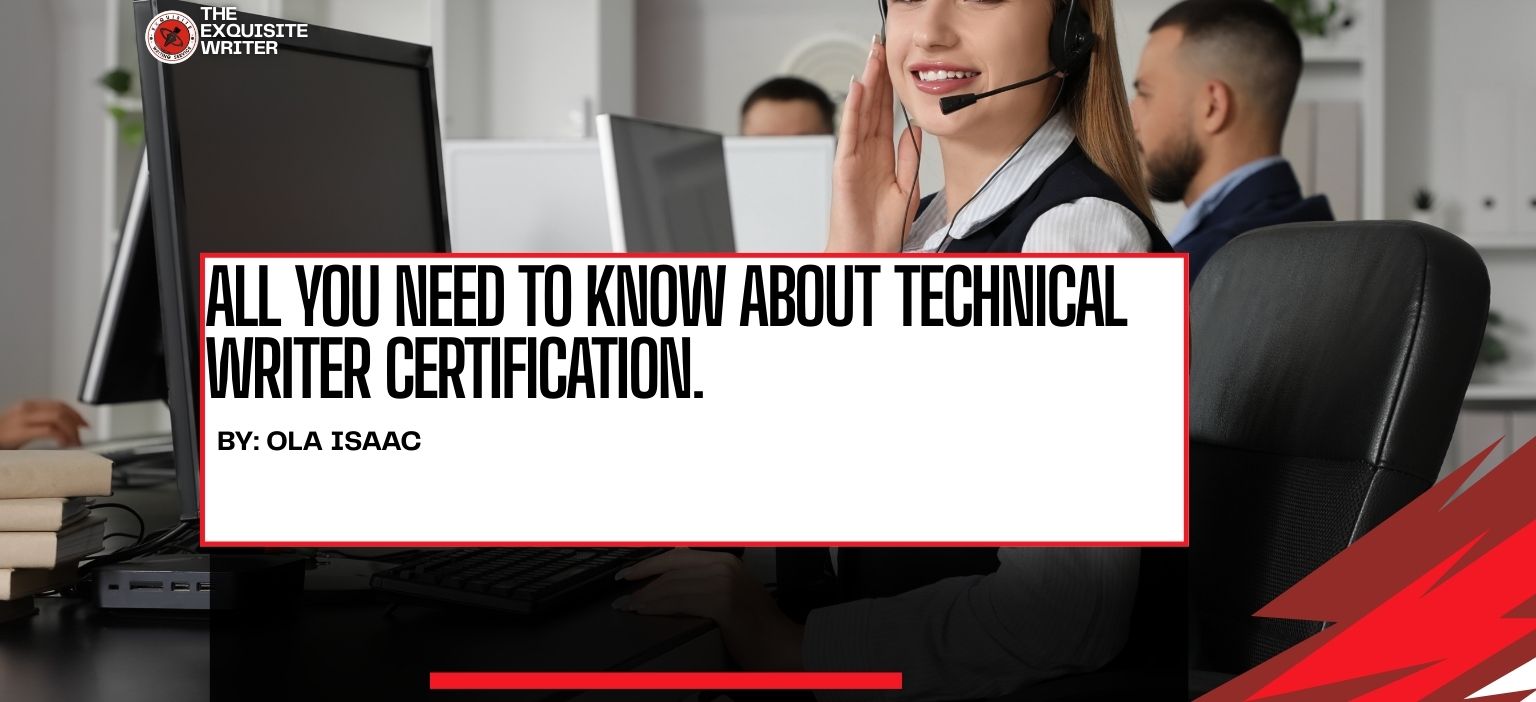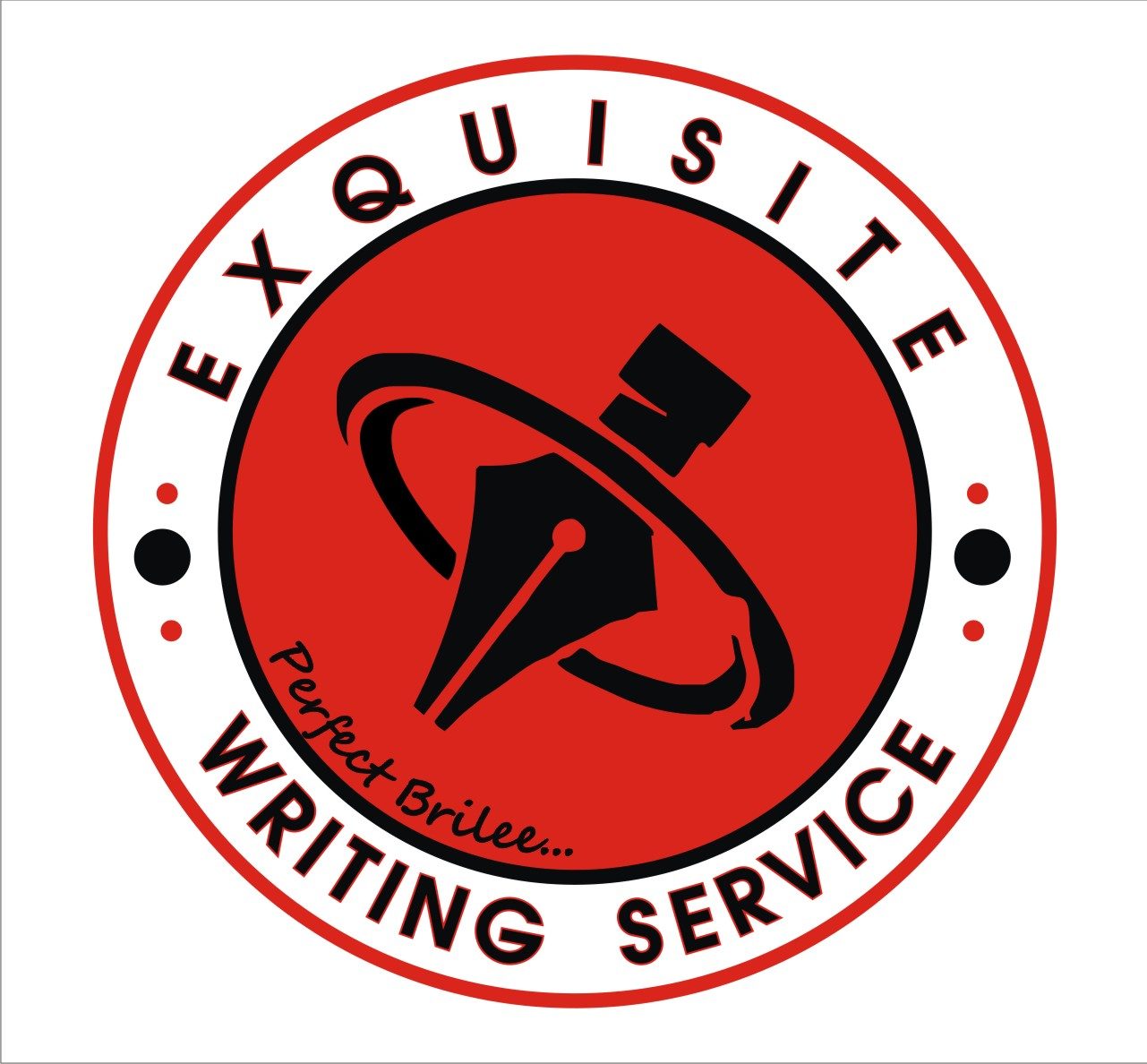
All You Need to Know About Technical Writer Certification
We live in a content-driven world and the role of a technical writer is more crucial than ever.
Whether crafting user manuals, documenting software, or writing product specs, technical writing demands precision, clarity, and user-focus.
To stand out in this crowded field you can’t help but get a certification!
This article walks you through the world of technical writer certification, drawing on industry-recognized standards, professional organizations, and widely used certification programs.
It’s a way to formally recognize your skills, add credibility to your resume, and help you stand tall!

What Is Technical Writer Certification?
A technical writer certification is a credential. It is often earned after completing a course or passing an exam that attests to your competence in the key skills of technical communication.
These are audience analysis, document planning, visual communication, technical documentation, editing, delivery, version control, and tools.
Here are some key aspects of technical writer certification:
- Many programs target springboards for career-changers or writers who look forward to specializing in technical domains. For example, the online “Certified Technical Writer” course at Technical Writer HQ covers 70+ lectures, templates, a capstone project, and ends in a certificate of completion.
- There are some more advanced, internationally recognized certifications such as the tekom e.V. “Technical Communicator (tekom)” certifies technical communicators at a professional or expert level.
- Some certifications are government or industry-based. For instance, the Vskills “Certified Technical Writer” course in India offers an online exam, lifelong elearning access, and government-approved credentialing.
Simply put, when you have a certification, it signals that you have met a defined set of standards in technical writing. Although, which certification and how much it matters depends on your market and goals.
Top Technical Writer Certification Programs for 2025
Ready to earn your credential? Here are some of the best technical writer certification programs for 2025, based on industry recognition, credibility, and real-world applicability:
1. Certified Technical Writer (Technical Writer HQ)
- Format: 100% Online, Self-Paced
- Duration: It would last from 15–20 hours
- Highlights: Covers audience analysis, documentation planning, editing, visuals, editing, and a final capstone project.
- Excellent for: Beginners and career changers who want practical projects and portfolio support.
- Website: technicalwriterhq.com
2. tekom Certified Technical Communicator (tekom Europe e.V.)
- Format: Online or In-Person (exam-based certification)
- Duration: It varies. However, it typically requires 3–6 months preparation
- Highlights: Europe’s most recognized certification aligned with ISO/IEC 17024 standards. It focuses on international communication, documentation management, and information design.
- Excellent for: Experienced professionals seeking a globally respected credential.
- Website: technical-communication.org
3. Vskills Certified Technical Writer (Government of India Initiative)
- Format: Online, self-paced + proctored exam
- Duration: Writers can get nearly 12 months access
- Highlights: Covers document structure, layout, graphics, editing, and report writing; government-approved certification.
- Excellent for: Writers in India or Asia-Pacific markets seeking a recognized, affordable credential.
- Website: vskills.in
4. Coursera’s Technical Writing Specialization
- Format: 100% Online via Coursera
- Duration: It runs from 4–6 months (self-paced)
- Highlights: University-backed specialization covering clarity, grammar, document design, and advanced technical editing.
- Excellent for: Learners wanting an academic credential and flexible pacing.
- Website: coursera.org/specializations/technical-writing
Other Technical Certification Programs Worthy Mentions
- Udemy’s Technical Writing Courses: Affordable and beginner-friendly.
- edX’s Professional Technical Writing by the University of British Columbia: Perfect for formal academic certification.
- Google Technical Writing Course (free): Ideal for software engineers and developers writing internal documentation.
When choosing a certification, you wouldn’t need to pick the most popular, pick the one that:
- Matches your industry (engineering, software, medical, manufacturing).
- Fits your budget and schedule.
- Build tangible portfolio projects worthy of showing employers.
Related Read: Creative Writing vs Technical Writing: 4 Key Differences
Why Technical Writer Certification Matters
1. Credibility and Differentiation
While experience is often the gold standard, a certification offers you a formal credential that hiring managers or clients can reference.
According to the Society for Technical Communication (STC), professional certification can “help an employee validate their skills and knowledge” and “differentiate them from others in the hiring process.”
2. Skill Focus and Learning Pathway
Certification programs do cover key areas you might not learn on the job—such as user analysis, document strategy, versioning tools, structured authoring, and accessibility. They offer structured learning and help you build a portfolio.
3. Career-Change or Upgrade Tool
If you’re coming from another field (science, engineering, journalism and moving into technical writing, certification presents you a bridge—validating your learning, interest, and your readiness.
However, many professionals in forums mention that certifications alone won’t guarantee a job. As one experienced technical writer commented:
“As someone who has hired a lot of writers, certificates are meaningless. Experience is everything.” Reddit
Many professionals in technical writing communities, including STC forums and UX writing groups, share similar views—certifications help, but hands-on experience and a strong portfolio consistently rank higher in hiring decisions.
How to Choose the Right Technical Writer Certification
With so many certification programs available, it’s crucial to choose one that aligns with your goals, industry, and learning style.
Not all certificates hold the same weight in the job market, so carefully evaluate each option carefully.
When selecting a certification, consider the following criteria:
1. Recognition and Reputation
Before investing in any program, first verify the credibility of the issuing organization.
- Is the certification from a respected body such as tekom Europe or a recognized university?
- Do employers in your region recognize and value it? Global recognition matters if you plan to work remotely or with international clients.
For example, tekom’s certification system follows the international standard DIN EN ISO/IEC 17024, guaranteeing high-quality certification processes and professional recognition across Europe and beyond.
Programs from accredited universities or organizations often carry more authority in professional settings.
2. Curriculum and Skills Covered
A great certification program goes beyond theory and covers the full spectrum of technical writing skills, including:
- Audience analysis and user-centric documentation.
- Information architecture and document planning.
- Visual communication and design principles.
- Writing tools and technologies such as Markdown, XML, FrameMaker, or other authoring systems.
For example, the Vskills Technical Writer Certification includes modules on document structure, emails, graphics, lab reports, and typography. This makes it especially practical for entry-level writers or those seeking to enhance their technical documentation skills.
When researching programs, review the syllabus to ensure it reflects current industry standards and the tools most commonly used in your niche.
3. Hands-On Experience and Portfolio Development
In technical writing, a strong portfolio often speaks louder than a certificate. Look for certification programs that require:
- A capstone project or final documentation assignment.
- Opportunities to create user guides, manuals, or case studies.
- Feedback or mentorship from instructors with industry experience.
Building a professional portfolio during your certification allows you to demonstrate real-world writing ability, organization, and problem-solving—qualities hiring managers highly value.
4. Cost, Duration, and Access
Certifications vary widely in duration, price, and learning format. Before enrolling, ask:
- How long will it take to complete the course?
- Is it self-paced, hybrid, or live?
- Do you get lifetime access to materials or tools?
For instance, Technical Writer HQ gives lifetime access to its course materials, helping students to revisit lessons and resources even after completing the program, ideal for skill refreshment and continuous reference.
Balancing cost with long-term value is vital.
An affordable program that offers reusable resources and practical exercises is often more beneficial than an expensive one with reduced support.
5. Industry Alignment and Job Market Fit
Not all technical writing certifications serve the same professional path.
Some cater specifically to software documentation, while others focus on medical, engineering, or academic writing.
Before choosing, check whether job listings in your target field mention or prioritize specific certifications. For instance:
- Software and IT companies usually value courses emphasizing UX writing or API documentation.
- Healthcare or engineering firms may prefer certifications focusing on regulatory writing, compliance, and clarity in technical data.
Choosing a certification aligned with your industry ensures the skills you gain are directly applicable and marketable.
6. Continuous Learning and Credential Maintenance
Technical communication is constantly evolving with new standards and tools. Some certifications require renewal or continuing education units (CEUs) to remain valid.
If you plan to stay long-term in the field, consider programs that encourage lifelong learning—either through alumni networks, community support, or updates to course content
Remember, the best certification isn’t always the most famous. Instead, it’s the one that aligns with your career goals, preferred learning style, and industry focus.
Therefore, research reviews, explore alumni outcomes, and, if possible, connect with certified professionals to gain first-hand insights.
Steps to Get Certified as a Technical Writer
The process of becoming a certified technical writer doesn’t have to be confusing. Whether you’re transitioning from another writing field or starting fresh, following a structured plan will help you achieve certification efficiently and confidently.
Here’s a clear roadmap to guide you:
1. Assess Your Current Skills
Before jumping into any program, take stock of what you already know. elf:
- Do I have experience creating documentation such as manuals, guides, or help articles?
- Can I explain technical topics clearly and logically?
- Am I comfortable using authoring tools like Markdown, Word, FrameMaker, or Confluence?
This assessment assists in identifying your strengths and learning gaps.
Beginners may require foundational training in writing software and structure tools, while experienced professionals might focus on compliance writing or advanced documentation systems.
Related Read: Why Is Writing Important for Students? (Examine 7 Key Reasons)
2. Choose a Certification Program
Next, select a certification program that matches your background and career goals. Consider:
- Reputation and recognition: Opt for programs from respected organizations like STC, tekom, or accredited universities.
- Curriculum fit: Look for courses covering both theory (communication models, user analysis) and practical application (document formatting, editing, visuals).
- Flexibility: Decide between self-paced online learning or instructor-led classes, depending on your schedule.
- Cost vs. value: Evaluate how much the program offers in terms of support, lifetime access, and job readiness.
Choosing wisely ensures that your time and money translate into meaningful, marketable skills.
3. Complete Coursework or Training
Once enrolled, immerse yourself fully in the learning process. A strong technical writing certification typically involves:
- Planning and organization: Structuring information to serve the reader’s goals.
- Audience analysis: Understanding who you’re writing for and adjusting tone, format, and content accordingly.
- Writing and editing skills: Producing concise, accurate, and consistent documentation.
- Tools and technologies: Hands-on training in software like Adobe FrameMaker, MadCap Flare, or XML-based systems.
- Accessibility and usability: Ensuring your documentation is easy to navigate and inclusive for all users.
The more effort you put into assignments and projects, the better your mastery of technical communication fundamentals.
4. Build a Portfolio Along the Way
Your portfolio is your biggest asset as a technical writer.
It shows employers what you can do, not just what you know. While studying, create and refine real-world samples such as:
- User manuals or quick-start guides.
- API documentation for developers.
- Troubleshooting articles or FAQs.
- Process documentation or case studies.
- Knowledge-base or SaaS help center content.
These samples demonstrate your ability to research, organize, and present complex information clearly.
By graduation, you’ll have verifiable proof of your expertise ready to impress potential employers or clients.
5. Pass the Exam or Submit a Final Project
Most technical writer certification programs require you to prove your skills through:
- A final exam, testing your grasp of core principles, tools, and writing standards.
- A capstone project or portfolio submission, which allows you to demonstrate real-world application.
Some certifications emphasize professional-level assessments to ensure you meet international standards.
Take the time to prepare thoroughly and review sample questions or project rubrics before submission.
6. Showcase Your New Credential
Once certified, don’t keep it to yourself—promote your achievement strategically.
- Add your certification to your LinkedIn profile, résumé, and portfolio website.
- Mention it in job applications and proposals, especially for documentation or content roles.
- Display your badge (if provided) on your email signature or online profiles for credibility.
Your certification not only validates your skillset but also helps you stand out in competitive markets where employers prioritize qualified communicators.
7. Keep Learning and Building Experience
Certification is not the end of your journey, it’s a launchpad. Continue to grow by:
- Working on real documentation projects (freelance, open-source, or in-house).
- Exploring specialized fields like API documentation, UX writing, or scientific communication.
- Attending webinars, workshops, or conferences on emerging documentation tools and trends.
- Joining professional communities or local tech writing groups.
Ongoing learning ensures you remain current, competitive, and valuable as technology and documentation standards evolve.
Treat certification as part of a long-term professional development plan—not just a one-time credential.
The best technical writers continuously update their skills, tools, and communication methods to match industry innovation.
Related Read: Humorous Writing Examples: 4 Ways to Make Your Readers Laugh
Frequently Asked Questions (FAQs)
Q: Do I need a technical writer certification to get a job?
A: Not always. Many employers place more value on experience, writing samples, and portfolio than on certificates. That said, certifications can help especially if you’re entering the field!
Q: How much does a certification cost and how long does it take?
A: Costs vary from a few hundred dollars to much more depending on the level and provider. For example, Vskills offers its certification for around ₹3,499 in India. Careers360 Duration can vary from a few weeks (self-paced) to several months for more advanced programs.
Q: Which tools or topics should I expect to learn?
A: Common topics include documentation planning, audience analysis, design and layout, writing for editing, clarity, editing, visuals and graphics, accessibility, version control (Git), tools like XML, Markdown, FrameMaker.
Q: What job roles can I aim for after certification?
A: Roles Like Documentation Specialist, Technical Writer, User Guide Author, API Writer, Content Developer, UX Writer can be accessible. Therefore having a strong portfolio helps.
Final Thoughts
A technical writer certification can be a valuable step in your career, especially if you desire to change fields or want to specialize in software, documentation, product manuals, or tech content.
It offers formal recognition, structure, and skill enhancement. But it’s not a standalone guarantee: the real value comes when you pair the certification with strong samples, real writing experience, and domain knowledge.
If you’re serious about tech writing, choose a certification that fits your goals, build your portfolio while you learn, and use the credential as one piece of your professional foundation!
As industry tools, standards, and writing technologies continue to evolve, staying informed through recognized organizations like STC, tekom Europe, and professional writing communities can strengthen your long-term career growth.



